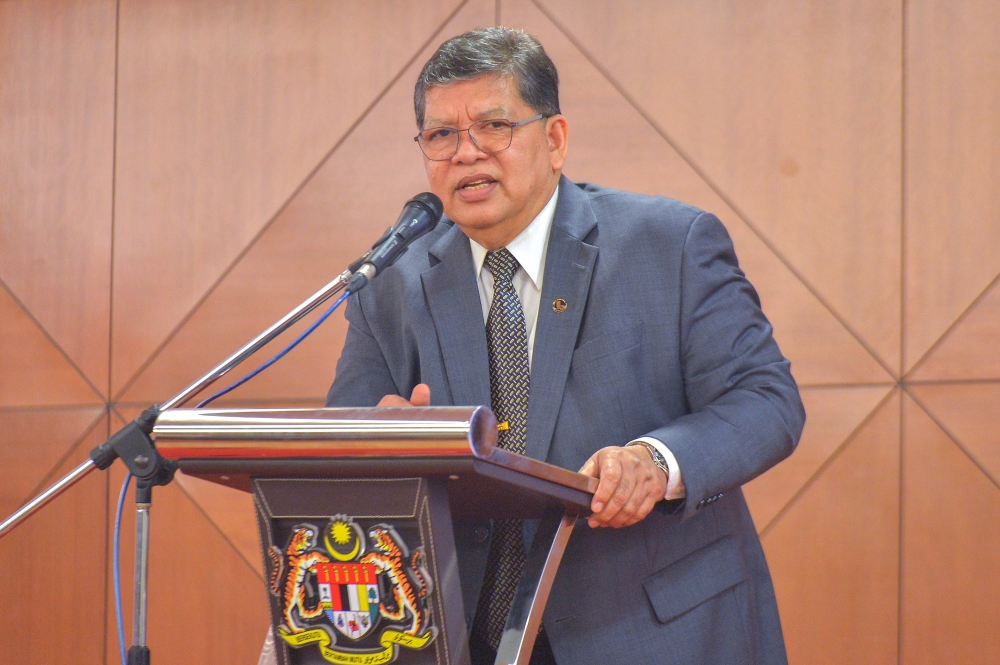JULY 15 — The Malaysian Federal Constitution for a long time had no explicit recognition of the role of political parties in our parliamentary democracy.
However, the bane of parliamentary democracy is when an elected member defects from the party of which he has been given electoral mandate by voters of his constituency and crosses the floor in Parliament.
The instability that results may end up toppling the elected executive government of the day.
The spectre of the Head of State being asked to decide as to who now can form the next government without having to call for fresh elections has given rise to the passage of the so-called “anti-hopping” (more accurately “anti-defection”) amendments to the Federal Constitution. The role of the political party is now expressly recognised.
Malaysia is no exception to the deleterious machinations which has caused the collapse of not only state governments but also at the Federal level.
It is one thing when an elected member to the Legislative Assembly changes his political affiliation out of principled disagreement with policies of the party to which he belongs and upon whose electoral mandate he secured his seat.
In such a circumstance a healthy practice would be he resigns his seat and permits a fresh by-election to be held.
It is another when defections are often prompted by motives driven by selfish motives of joining a winning ruling government of the day. If such motives are discerned, they are rightly condemned as morally wrong and as symptomatic of an opportunistic desire to retain power and privileges of being a member of the House and involves a breach of faith of the electorate
The introduction of the anti-defection provision Article 49A on October 5, 2022 into the Federal Constitution was an attempt to address the above ills and restore faith in the democratic framework without which the legitimacy of democratic governance will be eroded.
No amendments, however, can redress the challenges of its application in the world of real politics.

Legally the recent furore over whether the ruling of the Speaker that the seats of the six Bersatu MPs ought not to be declared vacant illustrates that there will be robust questions as to how Article 49A Is to be construed and who is vested with the authority to interpret the same definitively.
Article 49A provides, among others, that a member of the House of Representatives shall cease to be a member of that House and his seat shall become vacant immediately on a date a casual vacancy is established by the Speaker if:
(a) Having been elected to the House of Representatives as a member of a political party, he resigns as or ceases to be, a member of that political party;
However, under 49A (2) there is an exception that if the political party to whom the member belongs is dissolved or deregistered; if the member concerned resigns upon his election as a Speaker and if he is expelled as a member of his political party.
The conundrum is whether cessation of being a member is a result of expulsion or application of disciplinary procedure or a deemed vacancy by way of the political party’s constitutional provision.
The Speaker in ruling that the Bersatu six (6) seats are not vacated appeared to be relying on Article 49A (2) where an MP’s seat is not to be declared vacant if he is expelled as a member of the party.
This exception is based on the argument that there are genuine cases where a difference of adherence to party policies and or as against the leaders of the party is not wholly to be condemned and the MP ought not to suffer the vacating of his seat only in consequence of this principled conviction.
However this exposes a “loophole” which an elected MP then chooses not to resign from his party but takes a position where the party leaders then through their exercise of party discipline deemed the recalcitrance as misconduct that warrants a deemed vacancy and cessation as membership not by way of expulsion.
This matter falls upon the decision of the Speaker who has been vested with authority (“...the casual vacancy to be established by the Speaker.” (See Article 49(A)).
There is now an outcry over the Speaker’s decision and whether the decision has been properly made in adherence with the Federal Constitution.
It is to be noted that any challenge of the Speaker’s decision is faced with major constraints of Malaysian judicial precedents which have declined to exercise the power of judicial review over rulings of the Speakers.
In India the Supreme Court was willing to invoke judicial review jurisdiction over Indian anti-defection laws and the Speaker’s rulings.
Whether the Malaysian judiciary will follow suit awaits testing. The prime minister has been quoted as saying that the government is willing to look into this loophole.
The task to introduce Constitutional amendments is a large one as the intractable problem of whether the instrumentality of legal-constitutional norms can fully address this matter as the lust for power and the ingenuity of ways which political actors will seek to circumvent norms will persist.
* Philip TN Koh is an Advocate & Solicitor, High Court Malaya and Adjunct Professor, Universiti Malaya and School of Business, Monash Malaysia University.
** This is the personal opinion of the writer or publication and does not necessarily represent the views of Malay Mail.





















